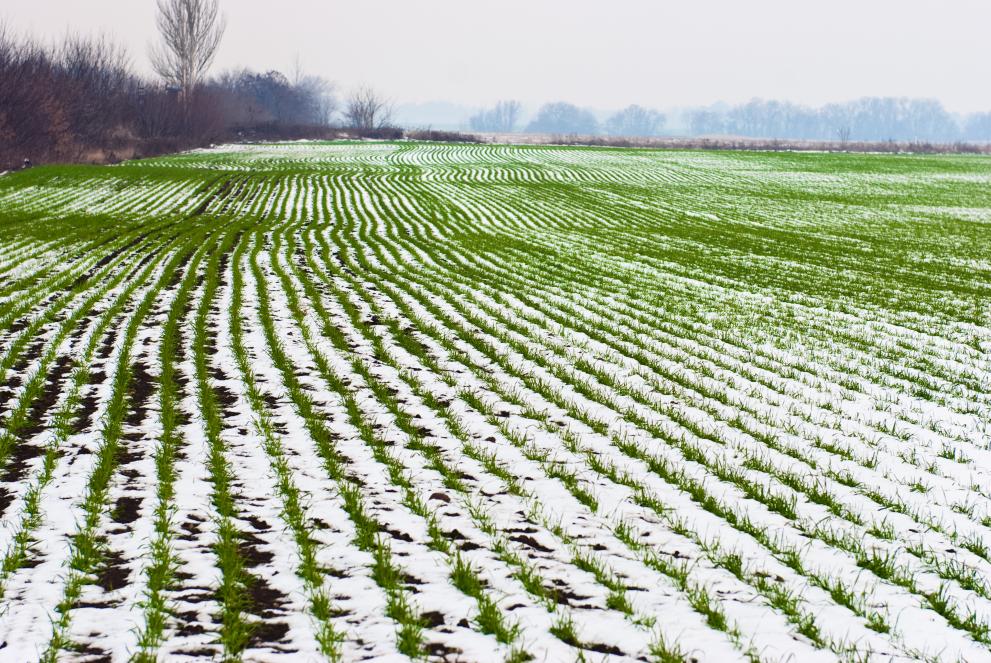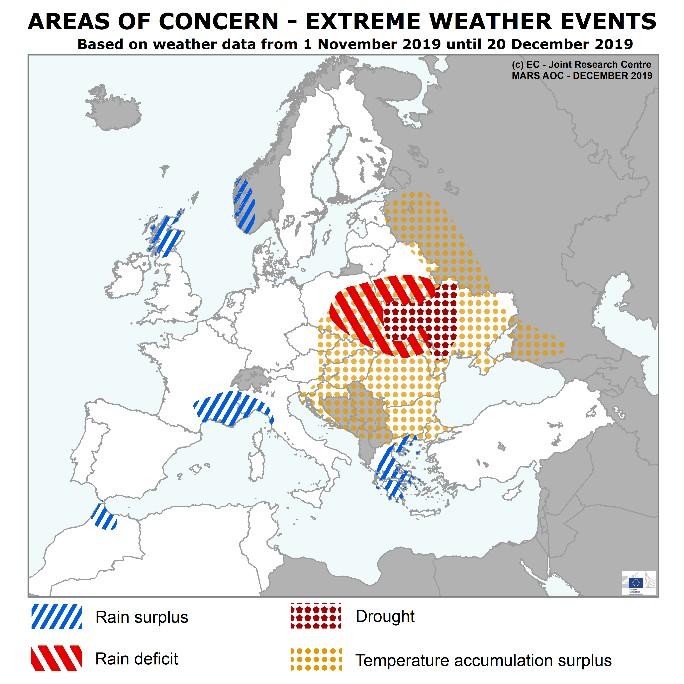
According to the December issue of the JRC MARS Bulletin - Crop monitoring in Europe, which was published today, thermal conditions have been much milder than usual in central, eastern, and south-eastern Europe.
In most of these regions, above-average temperatures have prevailed since early October. Consequently, the build-up of frost tolerance in winter cereals (hardening) has lagged behind and is much weaker than usual.
The current situation is delicate, because winter crops in many of these regions are underdeveloped due to delayed sowing and inadequate soil moisture conditions, which, combined with reduced cold tolerance, makes them particularly vulnerable to frost damage.
According to the current weather forecast (until 20 December), the warmer-than-usual conditions are likely to continue, with the most pronounced warm anomalies (up to 8°C above the long-term average) in eastern and south-eastern Europe.
As a consequence, no frost damage is expected during this period, but hardening will not progress and some regions will even be subject to dehardening.
The drought in western Ukraine continued during the period of review, as the sparse rains that occurred in November were insufficient to significantly improve soil moisture conditions.
Belarus and Poland experienced a rain deficit that is expected to continue during the coming days.
In Spain, Portugal, Romania, Russia and Turkey, the dry conditions that were reported in the November issue of the Bulletin ended thanks to beneficial rains at the end of November.
The excess of precipitation, since the beginning of November, has continued in northwest Italy, southwest France, Scotland (UK), Greece and northern Morocco.
Excessively wet conditions continued in north-west Italy, south-west France, Scotland (UK), Greece and northern Morocco, whereas conditions improved in other parts of western Europe.

Further information
The next Bulletin will be published on 27 January 2020.
Related Content
Details
- Publication date
- 16 December 2019
